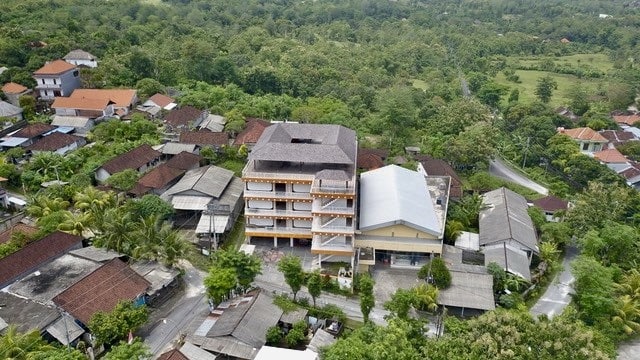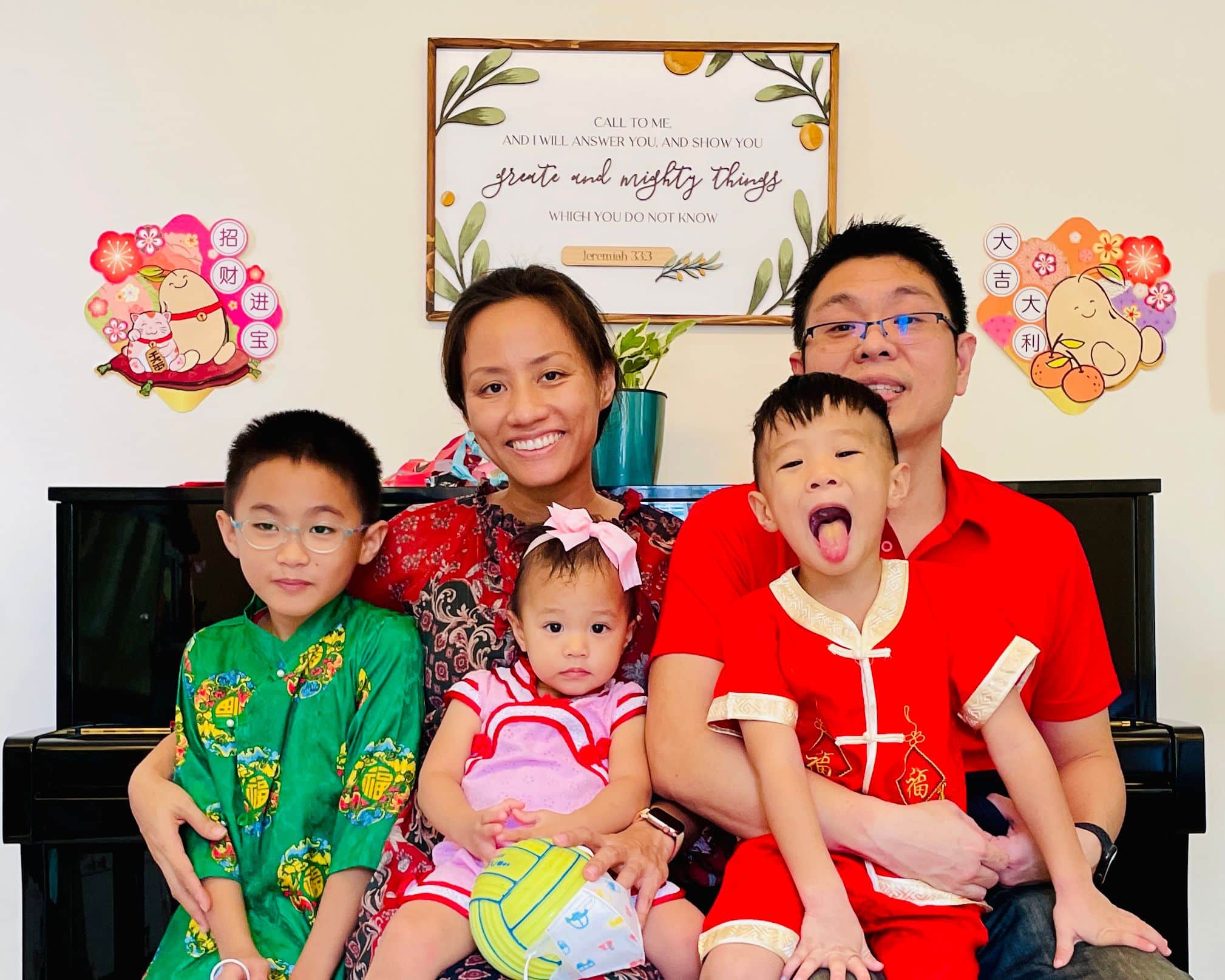This widow’s grief became a meditative breadmaking course that helps others heal
by Gemma Koh // November 10, 2022, 2:34 pm
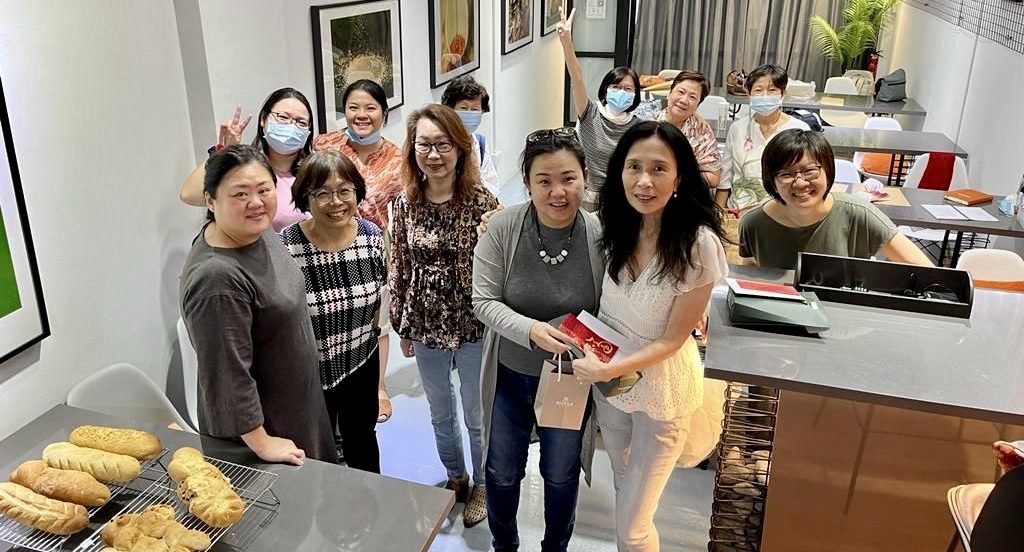
Through the process of breadmaking, Christina Wang (in white) guides participants to reflect on events in their lives that have "punched them down" and helps them to rise again. All photos courtesy of Christina Wang and Panis The Village unless otherwise stated.
It felt like just another Saturday: Peter Zheng dropped his jeweller wife Christina off at her store in the Orchard Road area. Then he went off to the gym, and came back to meet her for lunch.
“He looked pale and I suggested he go home to rest. He didn’t, but went on to watch a movie,” Christina, now in her 60s, told Salt&Light of the day in 1998 that changed her life.
“If he had been at home, 8am would have been his time of death.”
She was then 40. Peter was 42, and an account director with an advertising agency.
That evening, Peter picked his wife up from work, and they attended a wake. When they got home, he was tired, and went to the bedroom to rest.
“Then a friend happened to call me,” said Christina.
Awakened by their chatter, Peter asked to speak to this friend’s husband “who happened to be a cardiologist”.
The cardiologist asked Peter to go straight to his clinic for tests. He decided to ward Peter overnight “just to be safe”.
At 4:40am, Christina’s phone at home rang. The cardiologist said: “Peter is not well. We need to do something straight away.”
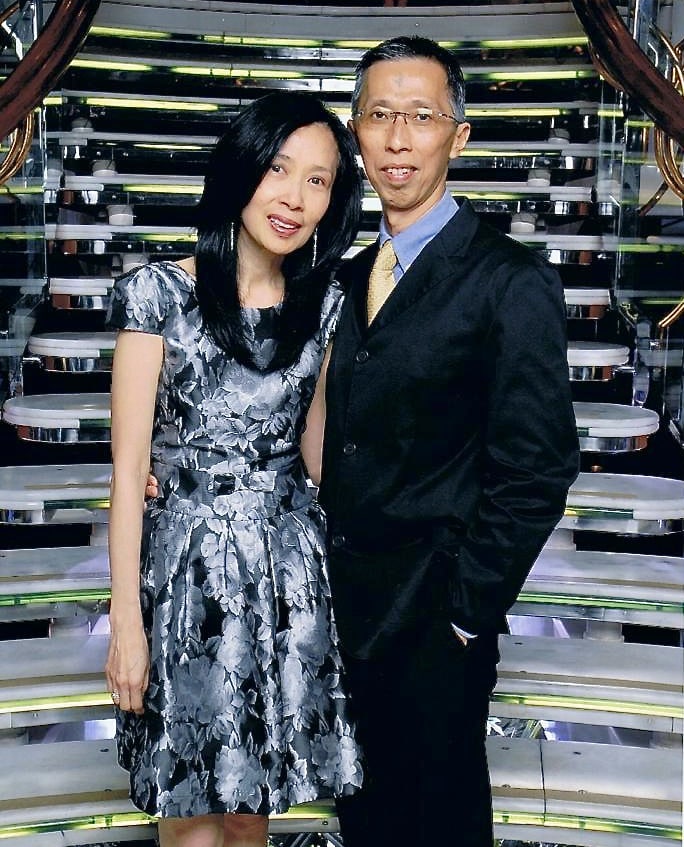
Peter and Christina on a family cruise in June 2011, nine months before he passed on.
At 8am, they wheeled Peter into the operating theatre where his heart stopped. The surgical team was able to resuscitate him.
Peter went through six heart bypasses in five hours.
“I went hysterical because I was locked in fear that I would wake up to find him motionless, without breath.”
Five days later, Peter told Christina he had a surprise for her: An early discharge from hospital.
“I froze. I walked out of the room and collapsed in the corridor,” said Christina.
“I went hysterical because I was afraid to take him home.
“If he had been at home, 8am would have been his time of death. I was locked in fear that I would wake up one morning to find him motionless, without breath.
“Our friend found me in the corridor and comforted me and prayed for me.”
It was the first major trauma in her life.
Watching him like a hawk
Back at home, it was not unusual for Christina to wake up when Peter snored.
“But when he stopped snoring, I would wake up in a nanosecond and poke and kick him till he made some movement and started snoring again. Then I would be so relieved,” said Christina.
“God showed us grace … but the Enemy turned it into a lie. I believed, ‘You mustn’t sleep or Peter will die’.”
She realised why she was so affected when he was still.
“He would have died that early morning if our cardiologist friend had not intervened,” she said.
“God showed us grace through this friend. But the Enemy turned it into a lie. I believed, ‘You mustn’t sleep or Peter will die’.”
Christina became an insomniac.
“I was a wreck. I was afraid to sleep because I was watching Peter like a hawk, afraid that he would die.”
Peter recovered and in 2006, the couple went for training to serve in the inner healing ministry. With God’s help, the ministry aims to bring holistic healing to people who have have been emotionally wounded or traumatised by life events as early as when they were in their mother’s womb.
A leader had identified the couple as having compassion vital for the ministry. It was an answer to two years of prayer for them to serve together.
Through these sessions, Christina would also receive freedom from the crippling fear that Peter would die in his sleep.
“It’s time to release Peter”
Then Peter was diagnosed with cancer in January 2009.
“My life was so broken. When you love your husband so much, you cling on to him.”
Said Christina: “I was a complete mess.”
But she was grateful that God had enabled her to wind up her jewellery business and sell off the inventory before Peter’s diagnosis. This was set in motion the year before, when she had to give up the store when the shopping centre closed for an overhaul.
Christina also saw God’s grace that “Peter was well in his illness”.
All this meant that the couple could spend all their time together. It included serving as volunteer counsellors in the Singapore Prison Ministry and overseas, and facilitating retreats and workshops for churches, hospitals and other organisations. They were active up till three months before Peter’s passing.
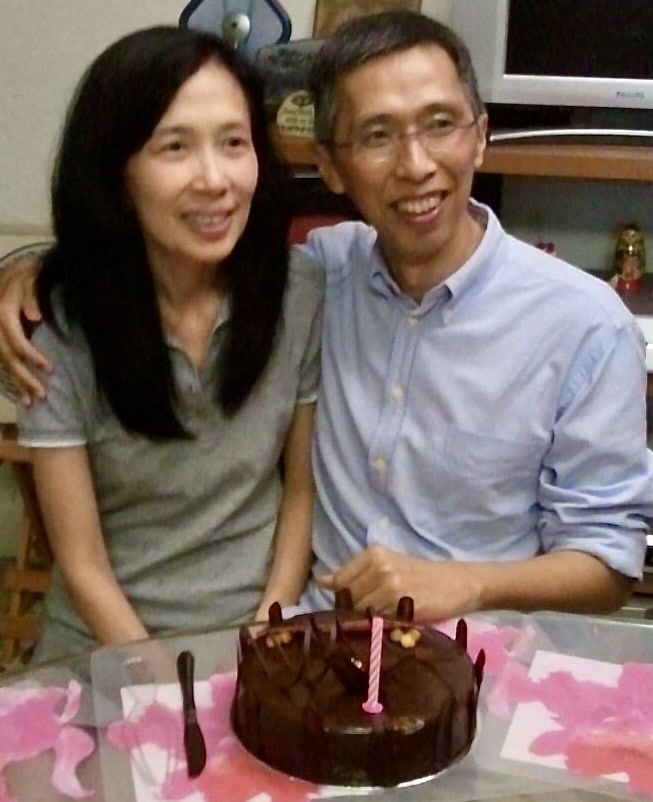
Celebrating what would be Peter’s last birthday on earth in June 2011.
“All of that would not have been possible if God had not extended his life through the two wonderful doctors,” said Christina.
“When I received those words, I had a sudden supernatural peace. Otherwise, I was a basket case.”
“Without them, I would have been a widow a lot earlier. It would have been a lot more difficult without that extra time.”
Peter had been given three to four months to live. The couple went on to have 39 months together.
“My life was so broken. When you love your husband so much, you cling on to him. I prayed for his healing right till the end.
“Then God spoke to me one morning. He said, ‘Christina, it is time to release Peter’.
“When I received those words, I had a sudden supernatural peace. Otherwise, I was a basket case.”
A few hours later on March 31, 2012, her husband of 30 years slipped from this world into his heavenly home.
“Lord, study simi?”
“Losing Peter was very difficult. I really went through the dark night of my soul,” said Christina.
She clung to her heavenly Father – “the first person I always go to for comfort”.
“My safe space, my security is with Him,” said Christina who also saw a psychologist who helped her process her grief.
To help her heal, her heavenly Father would also take her through a process of surrender.
Christina heard the Lord ask her to hand over leadership of the inner healing ministry (HIS Ministry of the Trinity Annual Conference of the Methodist Church in Singapore) in 2018. She was second in charge, after the overseeing pastor, for seven of the 14 years she was involved in it.
“The ministry was like my child. I saw its conception and gestation,” she said. She had also seen the number of counsellors double from 30 to more than 60.
“I was reluctant to hand it over and I struggled with it for a few months.”
Painful as it was, she did, but remained on as a mentor.
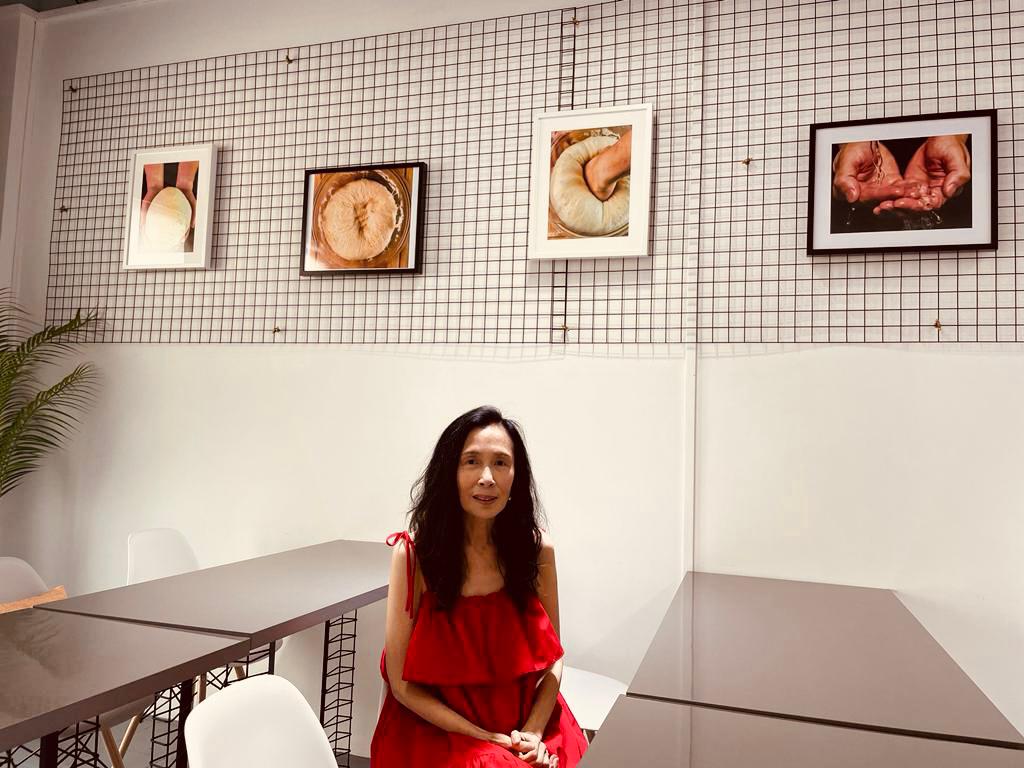
From surrendering the inner healing ministry, God would lead Christina to start one that involved the seemingly random activity of breadmaking. Photo by Gemma Koh.
Then three years ago, the Lord instructed Christina to study for a Certificate in Christian Ministry at Trinity Theological College.
“Lord, I’m so old. Study simi (what)?” she asked.
Embracing Ruth
During a module on the Old Testament, Christina heard God say, “Christina, I want you to write a paper on Ruth.”
“Ruth was a book I had refused to read when Peter was ill.”
Christina explained: “Ruth was a book I had refused to read when Peter was ill; I told God, ‘I don’t want to be a widow, I don’t want to be called Mara’.”
(In Ruth 1:20, Naomi had said, “Don’t call me Naomi. Call me Mara.”)
Researching and writing the paper was a cathartic experience.
“It was as if I was writing about what I had gone through,” she said.
“What is precious about Ruth, is that we all have to find meaning and purpose in what we’ve gone through in life.”
How would she find meaning and purpose from Peter’s death?
Earlier, at the start of that Old Testament, course, the lecturer had also done something unusual.
“For 30 years, I was Christina Zheng, wife of Peter Zheng … After that, I was widow of Peter Zheng.”
“He did a roll call, like what they do in primary school. He addressed students by their names as registered in their Identity Cards.
When he called out “Christina Wang”, there was no response.
Wang is Christina’s maiden name.
“For 30 years, I was Christina Zheng, wife of Peter Zheng. In ministry, we were known as Peter and Christina. After that, I was Christina Zheng, widow of Peter Zheng. I lost my identity,” explained Christina.
“The name the lecturer reminded me of is about who I am in Christ,” she said.
Helping others become secure in their own identity and to love themselves again would be an important component in her ministry that God would later lead her to start. It would involve a seemingly random activity of making bread, and it would be called Panis The Village. Panis is Latin for bread.
Surrender-rings
One night, Christina felt the Lord instruct her to surrender something else: Peter’s wedding ring.
“I was very broken inside. The next morning, He said, ‘Christina, I want your wedding ring, too.’
“I got very upset with God.”
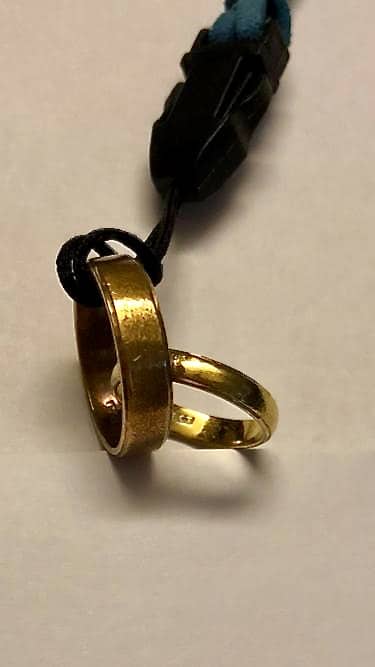
With the $238 she got from melting down their wedding rings, Christina started the fund TwoRuth, in memory of her husband.
Three weeks later, she was prompted: “Christina, it is time.”
She had the rings melted down. They fetched her “the handsome sum of $238”.
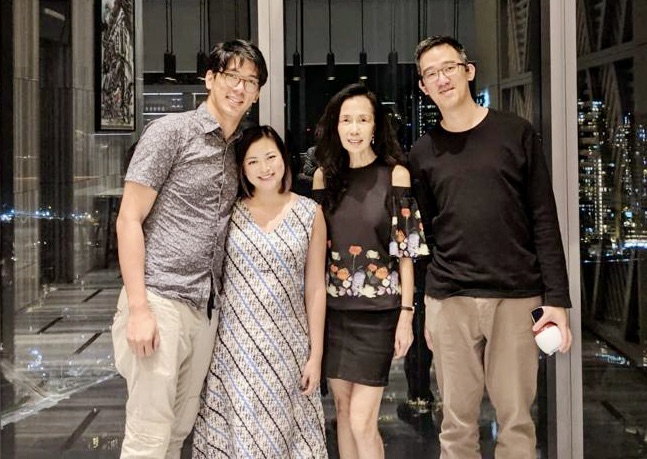
Christina with elder son, Wen (right), younger son, Bin, and daughter-in-law, Nicole.
With that, plus the “first fruits offering” from her elder son’s first paycheque, they started two funds in memory of Peter the husband and Peter the father respectively. TwoRuth was created to help women, while Compass Point was for millennials.
“It gave me comfort that we were doing something that was so dear in my heart.”
A pungent smell at 3am
Later that year, at 3am, a pungent smell roused Christina from her sleep while she was at a retreat centre.
“I thought I had left food to ferment. But there was nothing.”
She switched on the light and padded around the room trying to sniff out its source.
“I thought I had left food to ferment,” she said. “But there was nothing.”
The smell lingered in her room for three hours.
When it left as suddenly as it had appeared, Christina realised that it was “a supernatural smell”.
“A few hours later, I heard the Lord say, ‘The yeast has been prepared. There is bread to be made.'”
The pungent smell had been the smell of yeast.
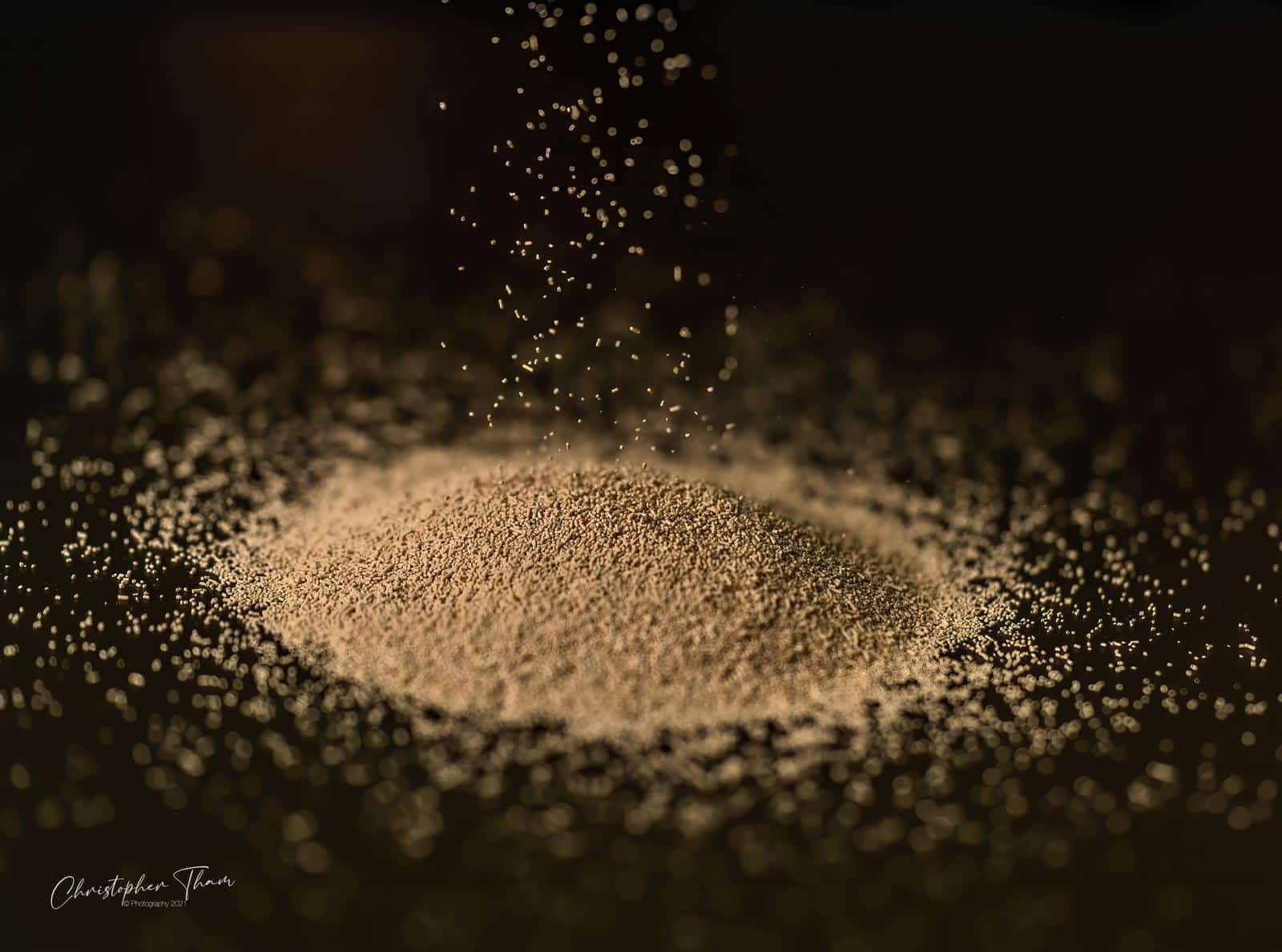
Photos like this one of yeast adorn the walls of the workshop space that Christina would start. It is by Christopher Tham, one of many of friends who have come alongside Christina to bless Panis The Village with their prayers, talent, time and equipment.
“Something clicked in me.”
The Lord had been giving her a series of signposts, starting in 2006 when Peter and she were in Los Angeles attending a series of inner healing workshops.
“God told me that one day, I would be doing something for those who do not know Him and who are in pain.”
The Lord had also given her the words “course and “curriculum” after she gave up the inner healing ministry.
She now knew that her healing curricula would involve teaching others how to make bread.
From painful mess to masterpiece
But how would someone who describes herself as “clueless” and who “freezes or takes flight” when overwhelmed develop such a course?
“I told the Lord, ‘You have to work though me because I’m such a mess’.”
Christina then heard the Lord tell her, “Do it physically and I will speak to you through it.”
She said: “I had never made bread before. I started making bread in earnest.”
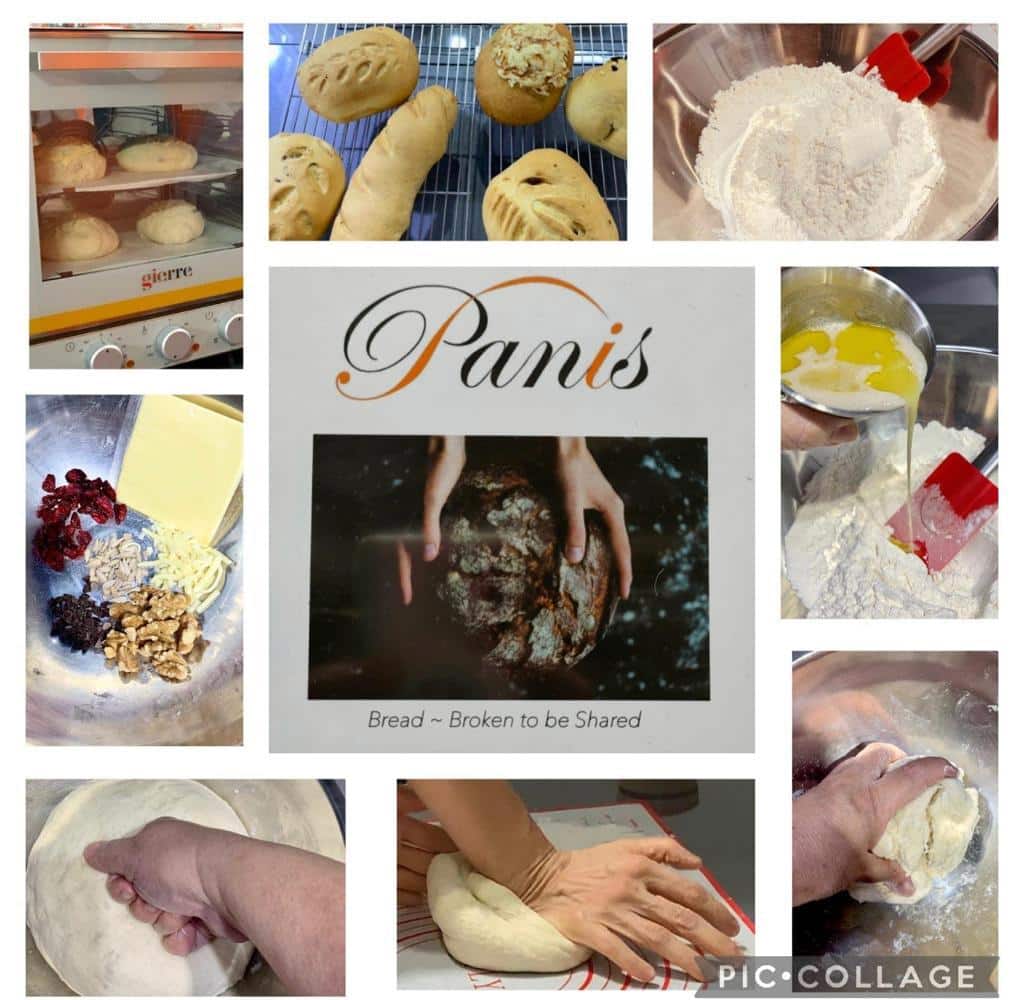
“I didn’t have a blueprint for the course. I just waited upon the Lord to lead me every step of the way,” said Christina. “God’s voice comes as thoughts that rush into me. I know it’s from Him because in one second, He’s downloaded one paragraph to me.”
She did this and spent time with the Lord in prayer, researching and scribing as led by the Holy Spirit.
Each step, each ingredient in the breadmaking process, would be symbolic of a stage in one’s life journey.
Then she realised why the Lord had sent her to theological college: “To be grounded again in the Word, and to get back into the discipline of research.”
God also pulled together the threads of her expertise – including her training in linguistics and experience as a teacher – in designing a two-day course that would help participants to move from bitterness to forgiveness, from shame to worth, from loss to hope.
Each step, each ingredient in the breadmaking process, would be symbolic of a stage in one’s life journey. During the weighing of the flour, for instance, participants would reflect on their parental influences. While mixing yeast with warm water, they would think about their conception.
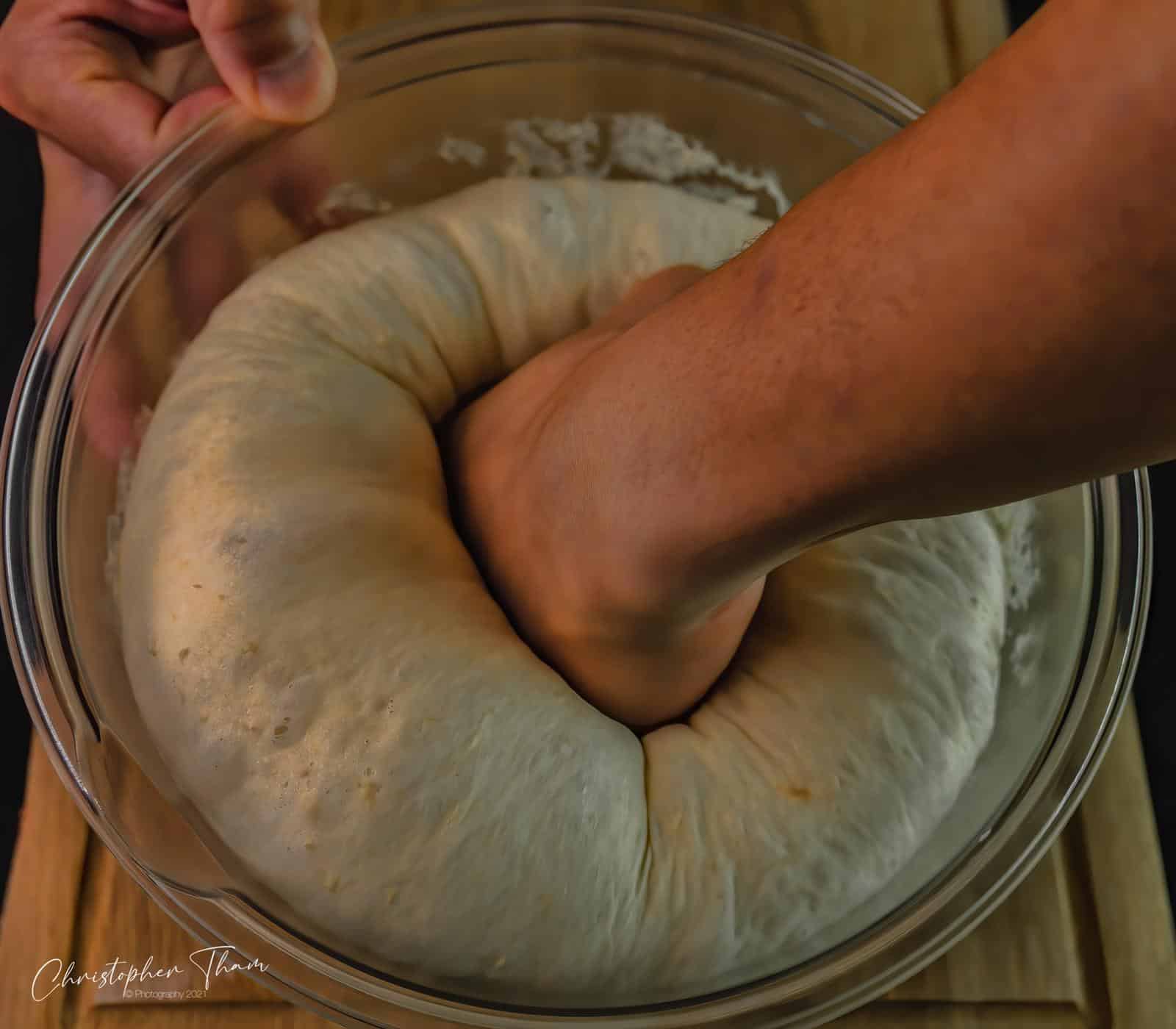
Knocking down of the dough represents what has punched one down in life. Photo by Christopher Tham.
From knocking down of the dough (what has punched them down in life), shaping the dough (how God shapes us when we allow Him to) and rising again (resilience and post-traumatic growth), the breadmaking process would help participants envisage a transformation “from painful mess to masterpiece”.
“The bread that comes out of the oven is God’s masterpiece – you.
“The bread is also to be shared with others,” she said, referring to one emerging stronger from adversity, and using their experience to benefit others.
Through a series of dreams, God gave Christina the confidence that He had anointed her (Luke 4:17-18) and commissioned her (Matthew 28:18-20) for the ministry. He also gave her the assurance that Peter and Christina’s late father would be part of the process.
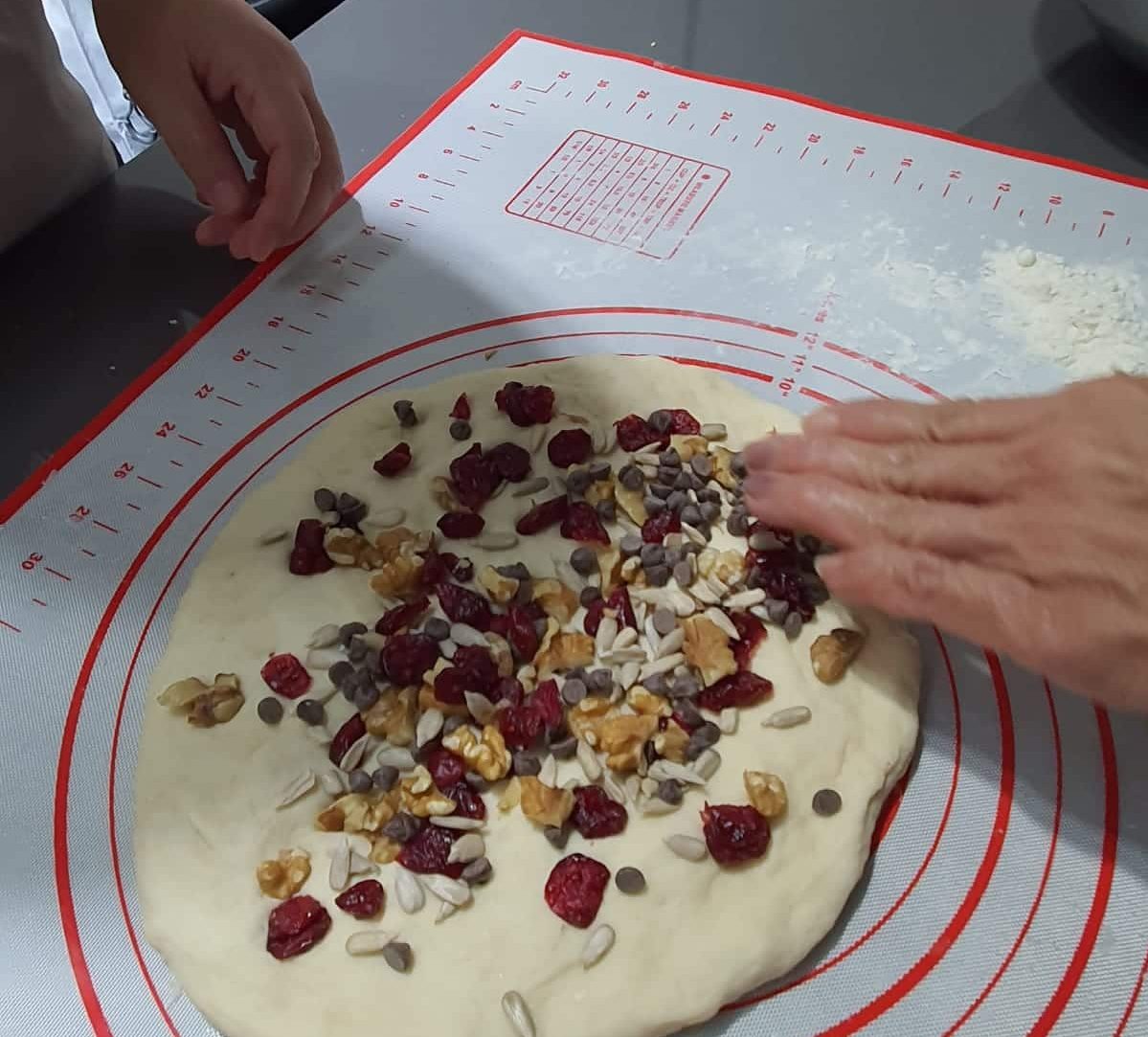
The process of making bread engages all five senses. “Our five physical gateways are also our five spiritual gateways through which we communicate with God,” said Christina.
Through dreams, God also gave her ideas of other people and organisations to partner with.
She would share her own experiences with trauma to help others process their own shame, guilt, grief and pain.
In her teaching, she would share her own experiences with trauma – including one that God surfaced to her in 2019 – to help others process their own shame, guilt, grief and pain, and to reframe negative thoughts and self-sabotaging beliefs.
Christina has had women – who have lost a loved one or a friendship, and people who had been sexually violated – literally collapse into her arms.
One participant said on Panis’ Facebook page: “I have never encountered any person … who could explain grief, pain and sadness in such a deep way, and how, despite such trauma experienced in life, the Lord’s deep, gentle and sweet healing comes to the fore. It is like a soothing balm to the wounds, and I was very touched when it was mentioned how the Lord’s wounds are over mine.”
This person felt like she had escaped a war zone after being stranded in India during the early days of the pandemic, where she had to scramble for food, and where many perished.
More than community
Of Panis The Village, Christina heard God say: “It shall be more than community, it shall be a type of communitas.”
The term “communitas” was defined by cultural anthropologist Victor Turner. It represents a community of people experiencing liminality (a state of transition between two stages in life) together in a missional going out that brings everyone to an equal level.
In November 2019, Christina started facilitating her first Panis programme. She has since run courses – Christian and non-religious – for churches, NGOs and students. She has also run Panis for staff at St Luke’s Hospital, where she is a volunteer. She refers to participants as “Panis pilgrims”.
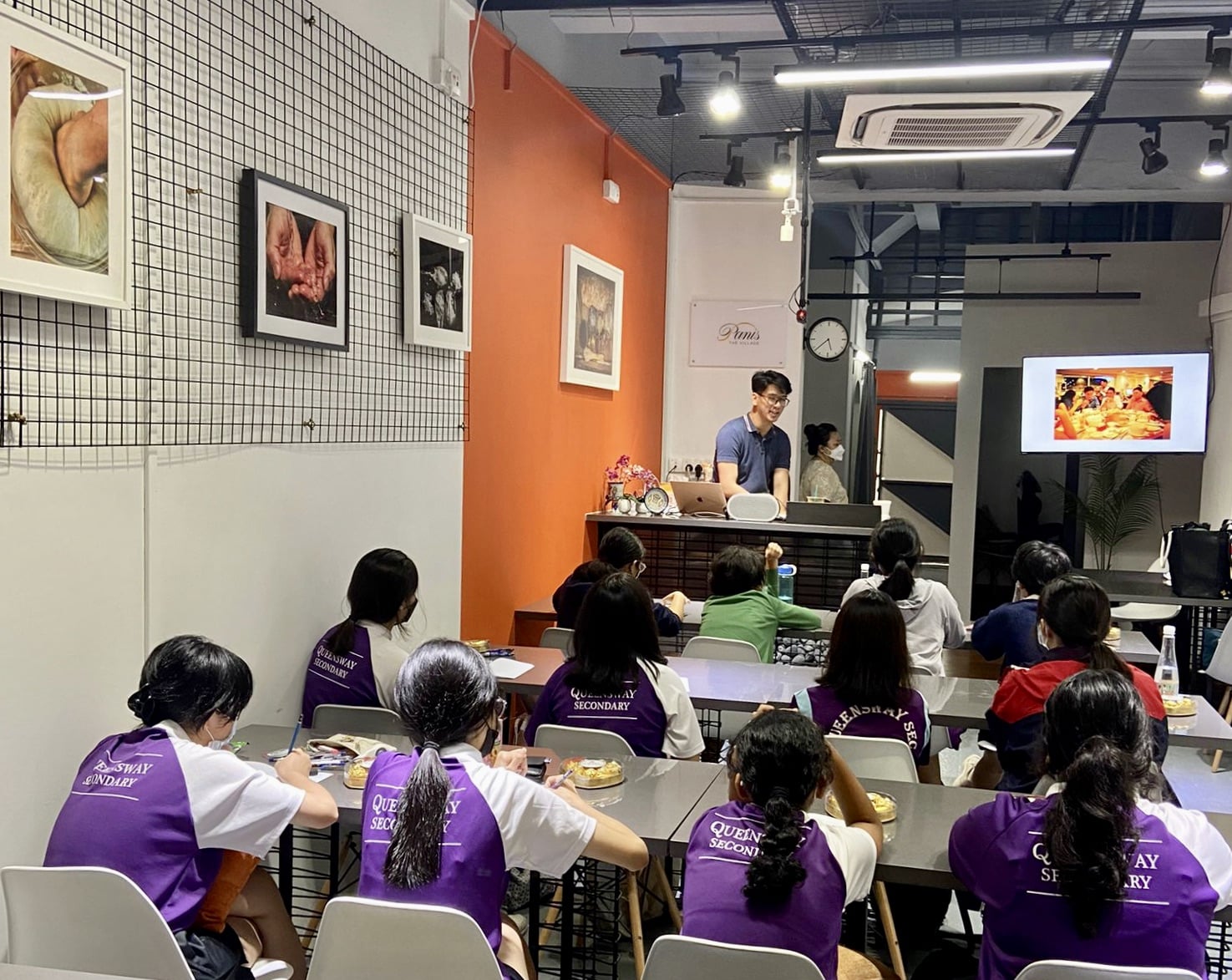
Zheng Bin, Christina’s younger son, shared of his struggle with dyslexia in his studies during an October workshop with non-religious content for students from Queensway Secondary School. Bin was a Normal Academic student who now holds a Master of Science in Finance.
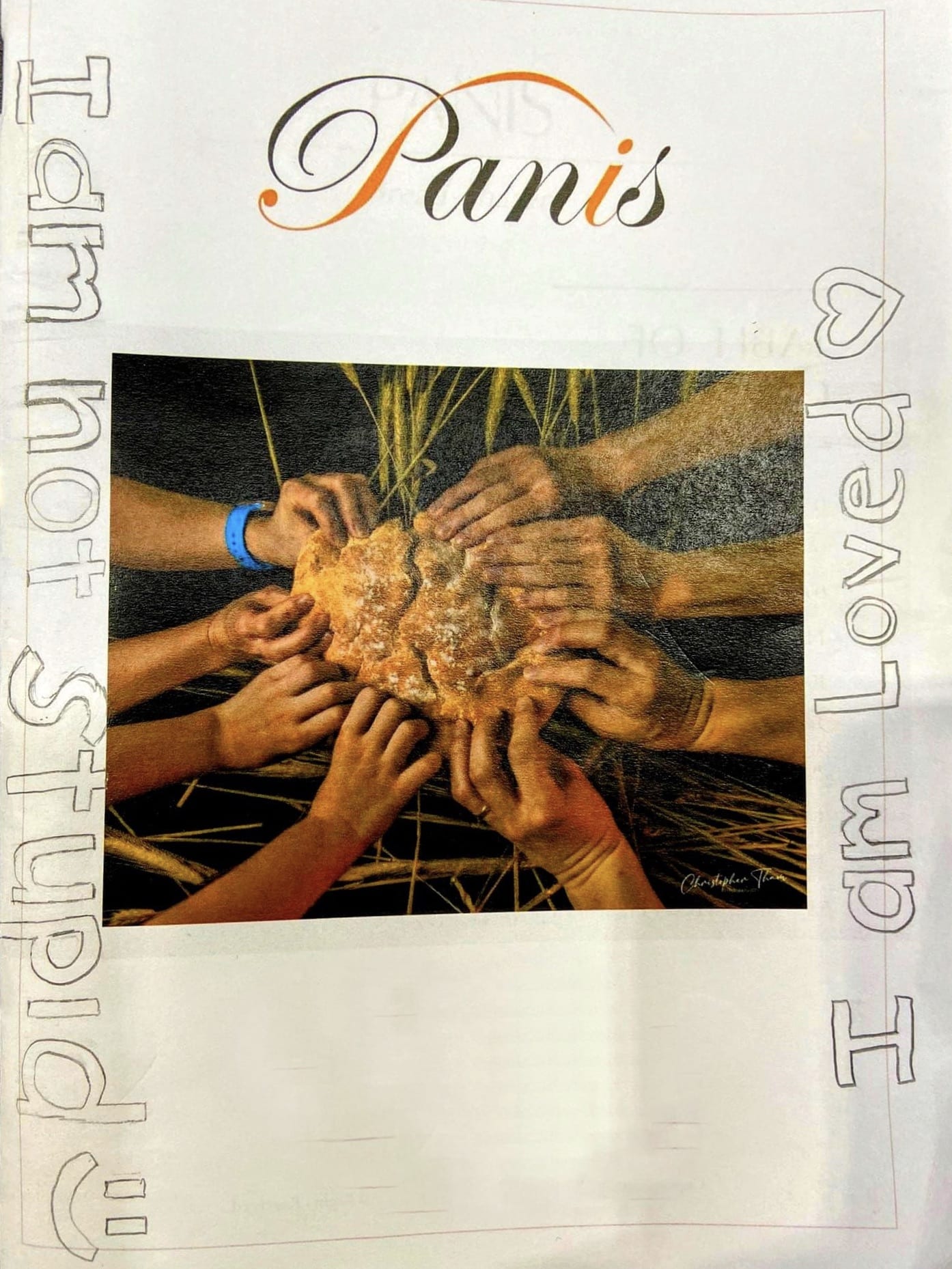
“I am not stupid. I am loved,” was one student’s takeaway from the workshop.
Christina also adapts the content for secular groups, to respect other religions and where the participants come from.
(This writer also discovered firsthand that friends who were otherwise resistant to the idea of counselling and talk about God enjoyed Christina’s gentle, non-intrusive approach, and were open to the concepts shared.)
Eggs-cellent evolution
The curriculum is constantly evolving to suit different groups.
In April, Christina ran a course for volunteers and beneficiaries from an under-reached community.
Because of the “disparate understanding and maturity” between the two sets of participants, Christina felt very discouraged when she was not able to connect with them on the first day.
God downloaded to her an idea to use rope, 15 hard-boiled eggs and dark soya sauce.
“I woke up at 4am on the second day to pray and seek God earnestly. I felt Him telling me, ‘I will surprise you.'”
He did. God downloaded to her an idea to use rope, 15 hard-boiled eggs and dark soya sauce.
He then showed her how to incorporate a few skits to illustrate how there can be freedom from sexual shame.
She used the rope as a visual cue to bind a volunteer couple together. Then pretended that the man had had many lovers, and used rope to tie him to other volunteers.
Then she used the scissors to cut him off from each lover – signifying the cutting of ungodly attachments – leaving him and his wife closer than before.
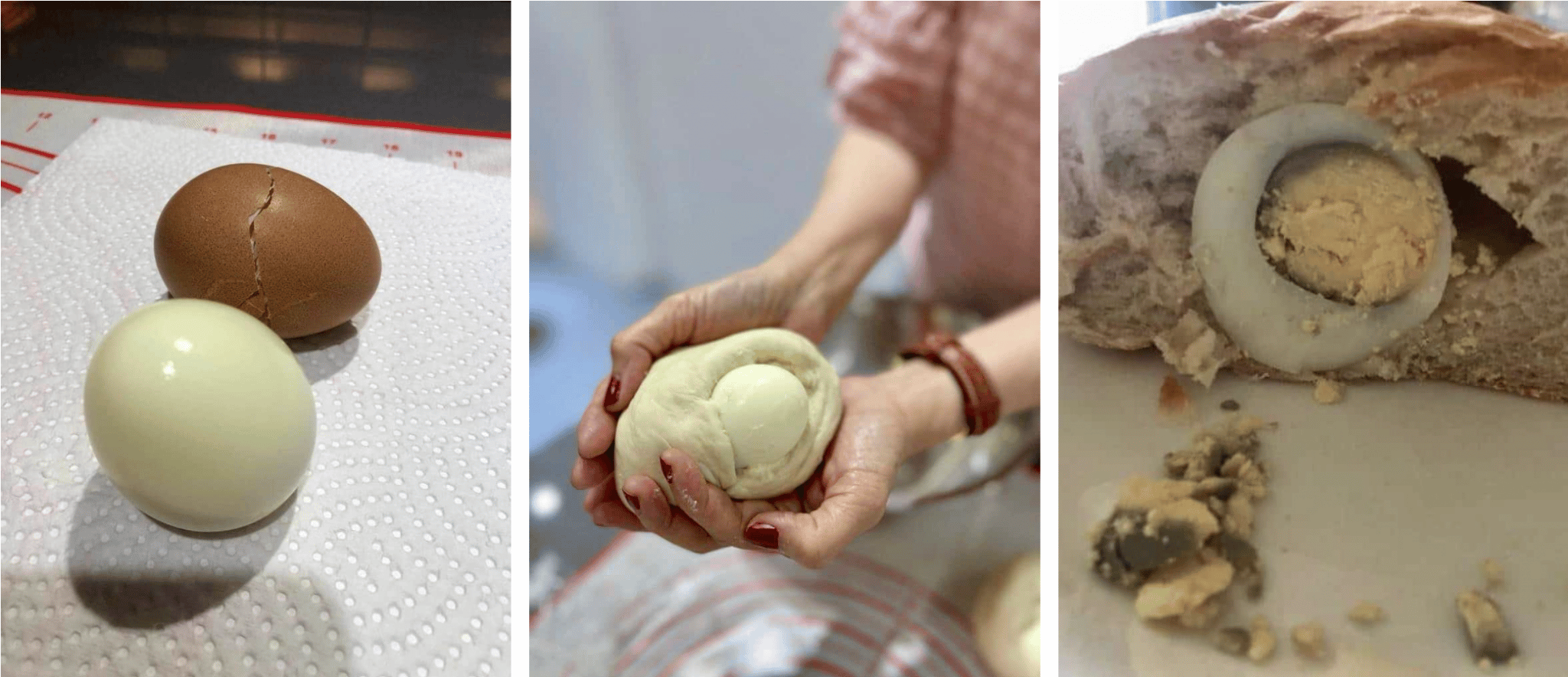
Christina used the egg shell of a hardboiled egg to represent what we have built around our hearts to protect ourselves. “But as the cracked egg shell (left) shows, we can’t and our hearts become hardened within. The peeling of the egg shell represented having the courage to be vulnerable to God.”
The soya sauce was mixed with olive oil as an analogy of how water and oil cannot come together, just as shame and worthiness cannot come together.
She made the connection with her audience.
“I truly wouldn’t have been able to do it without Holy Spirit. It was so humbling,” said Christina.
Sacred meditation
The highlight of the course is the meditative breadmaking session on Day 2. It is done in silence, with only Christina’s voice for guidance, and volunteer intercessors coming to share Words of Knowledge quietly with each participant.
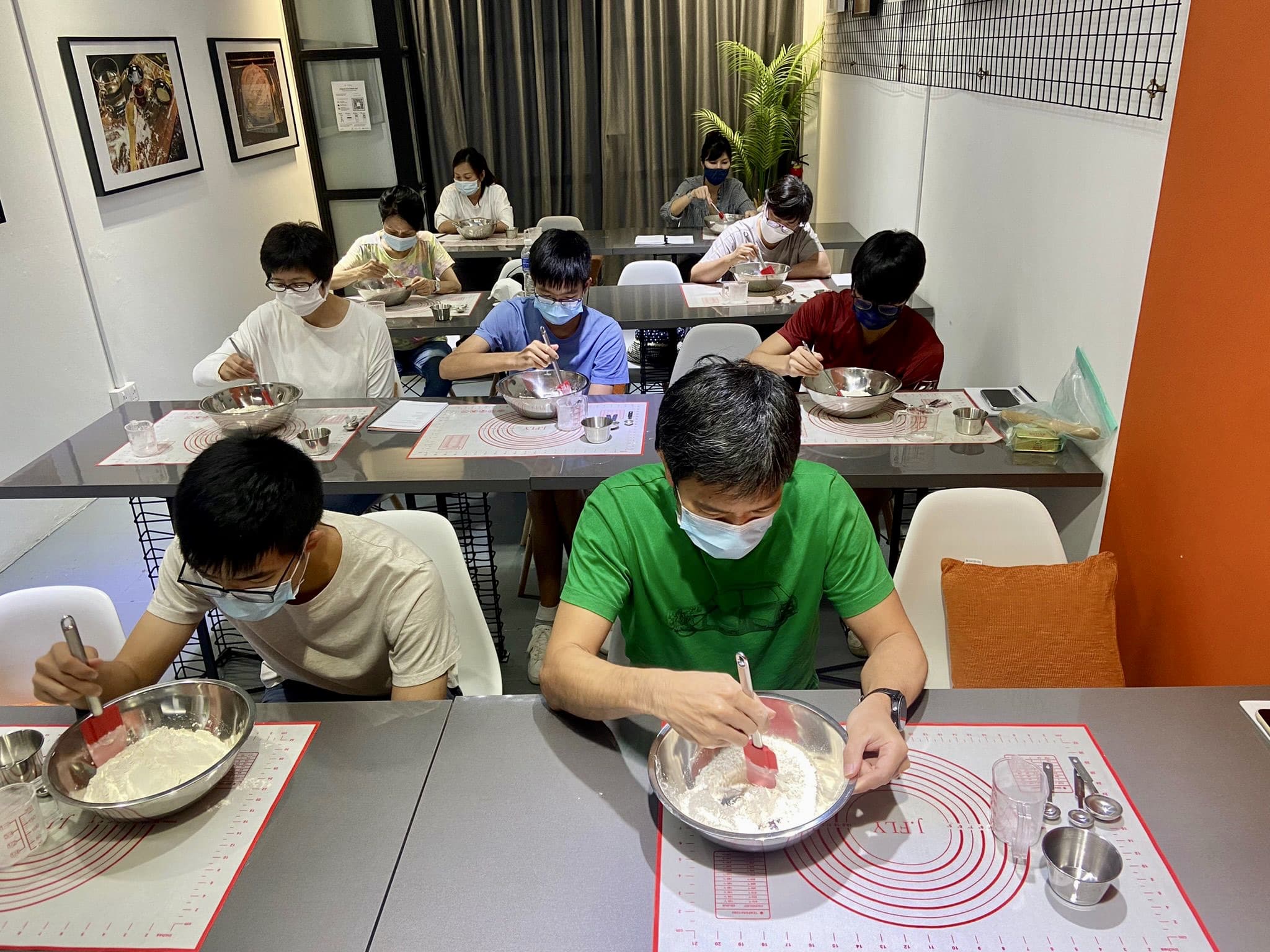
“It is the major ministry time, the sacred meditation, the time alone with God. It is so beautiful, powerful. You often see the tears coming as God speaks to them,” said Christina on the silent breadmaking session that takes place on Day 2.
One female participant, who had low self-worth, felt herself struggling internally that she was not good enough.
Christina said: “I picked up the dough and told her it is perfect. She started weeping. She had been feeling lousy about herself.
“I always tell them, ‘The dough is you. You are reforming yourself under the hand of Christ.’
“When they make bread, I also tell them that the hand of the Lord is over their hands. So it’s not about them doing it themselves.”
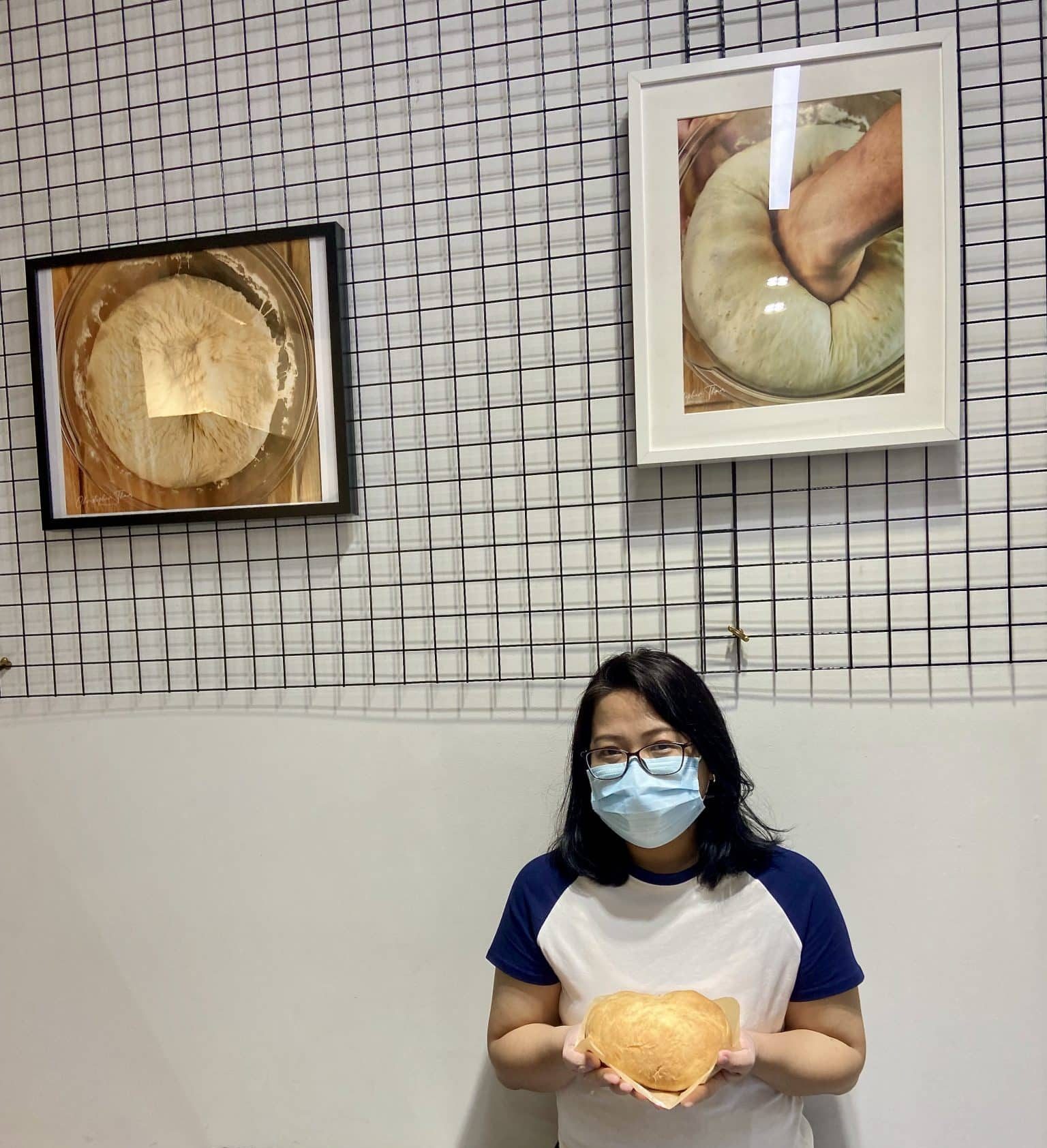
This participant shaped her dough into a heart. She chose to have her photo taken with an image of punched-down dough. “Because that is how God is reforming her heart after a trauma knocked her down,” said Christina.
Another participant was a foreign nurse who was unable to travel home for some time because of Covid restrictions.
“Her head was down, so I didn’t know that she was missing family, missing friends,” said Christina. “I went to check on her dough and she said she felt the Lord tell her, ‘I’ve sent you a friend’.
“Even if participants don’t know God, He shows that He knows them intimately – what thoughts are in their minds and hearts. He knows the issues they are struggling with and is able to reach out to them at the very moment.
“My role is to be in posture of prayer as I walk in and do Panis with them. I don’t have to be over anxious about how I do it,” said Christina, who “stands in the gap and intercedes silently” for secular groups.
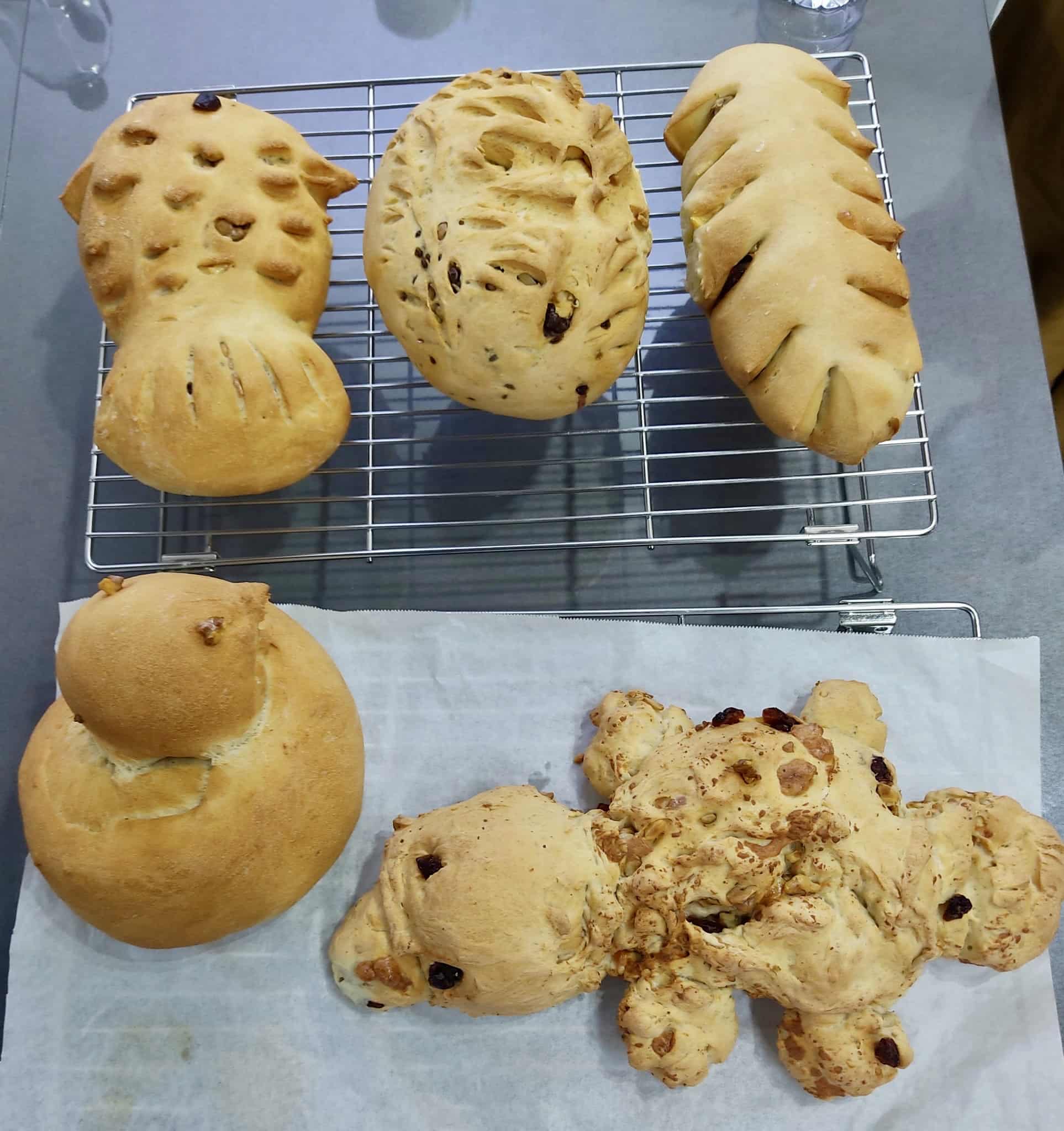
“Everybody starts with the same ingredients, the same methodology. Everybody’s bread comes out different. Why? Because God made us uniquely and differently,” said Christina.
“Panis is a place that welcomes everyone,” Christina said, adding that the aim is to touch participants with God’s love, with His healing, with His restoration.
She has seen Jesus become real for some though the process.
“They received a peace that they never received before. Some want to know more about Christ. How do you explain this? It can only be the work of the Holy Spirit.”
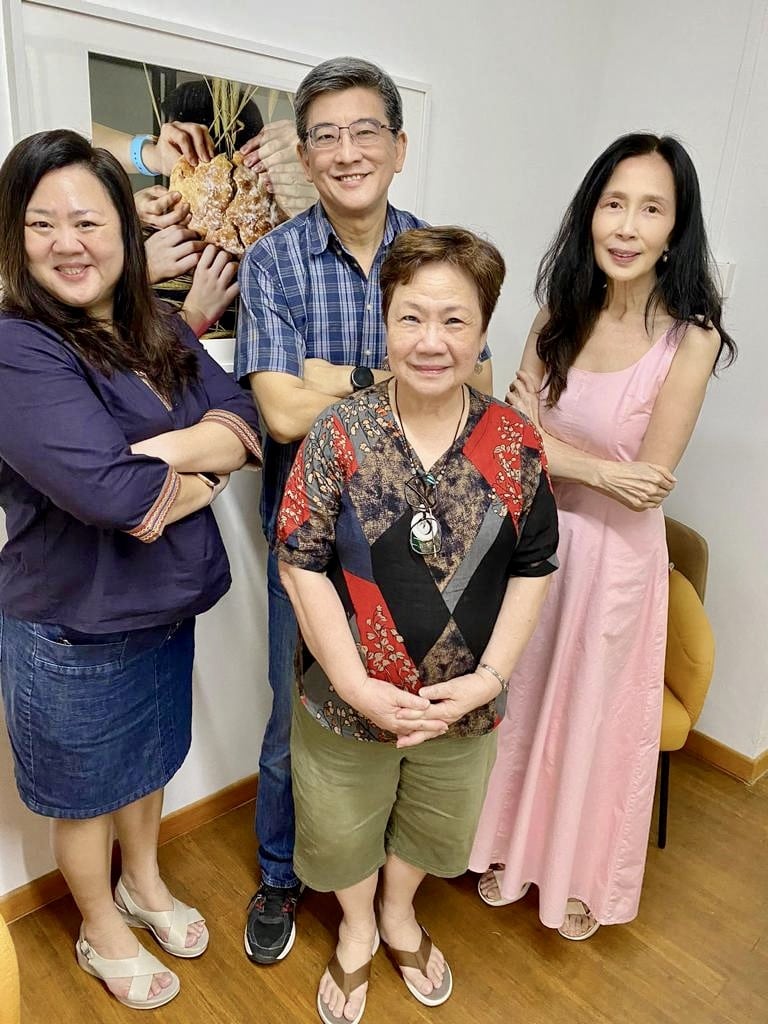
Christina with her co-facilitators in breadmaking, praying and journeying with fellow pilgrims: (From left to right) Eleanor Poon, Paul Teoh and Helen Lim.
Panis is run as a non-profit. Fees charged go into sustaining the programme and towards making the course free for marginalised groups who may not be able to afford it.
Christina also follows up with those who may want more prayer and counselling.
RELATED STORIES:
Business down by up to 97%, yet these restaurant owners are still giving to the community
How do Sunday Schools meaningfully include children with special needs?
We are an independent, non-profit organisation that relies on the generosity of our readers, such as yourself, to continue serving the kingdom. Every dollar donated goes directly back into our editorial coverage.
Would you consider partnering with us in our kingdom work by supporting us financially, either as a one-off donation, or a recurring pledge?
Support Salt&Light